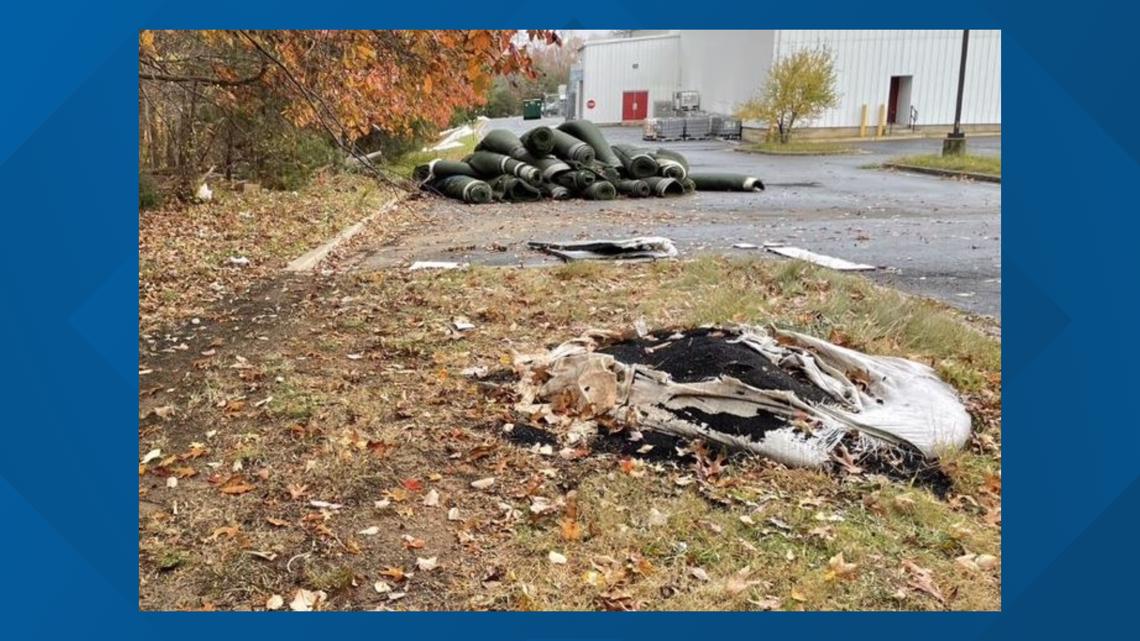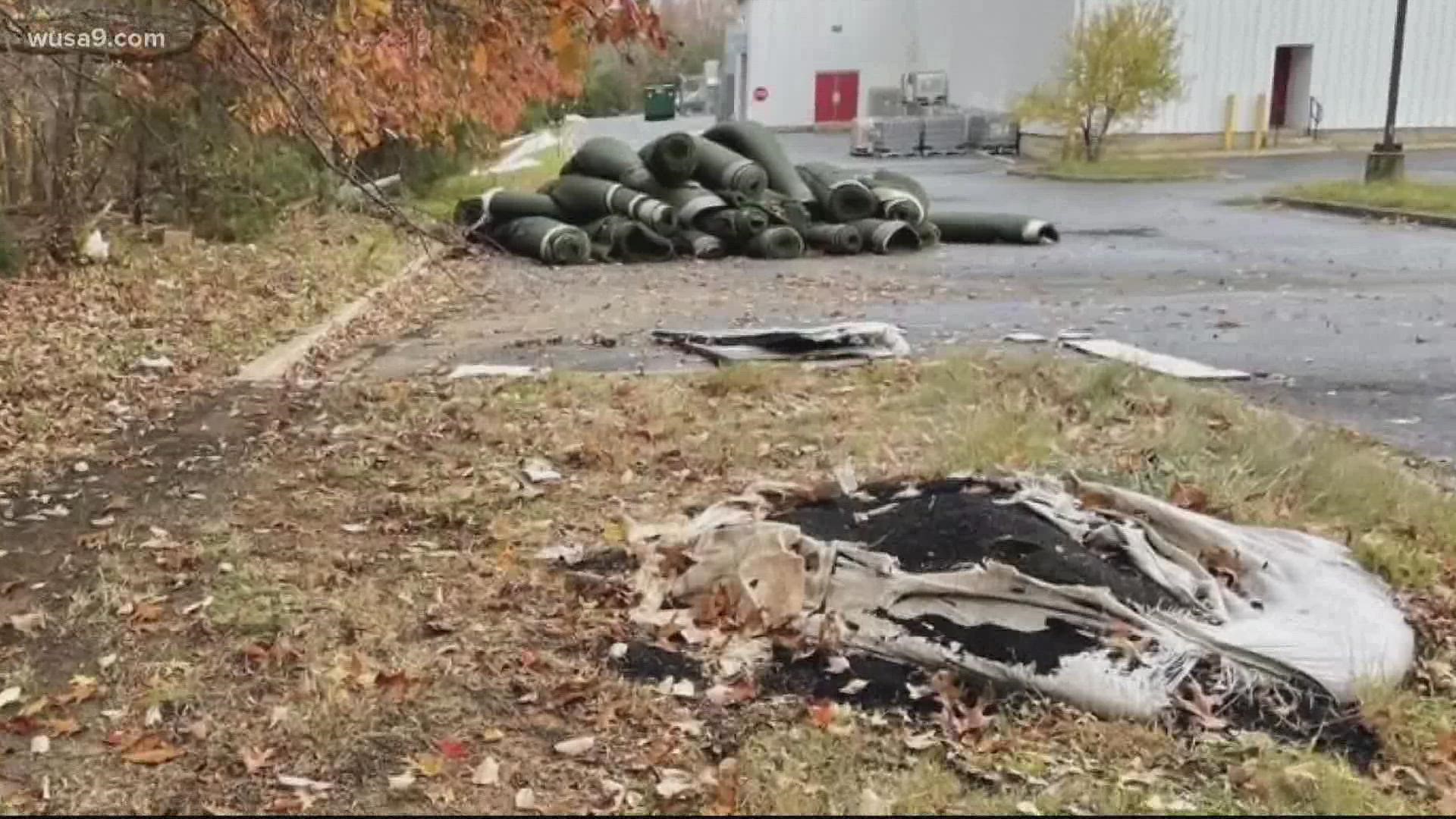ROCKVILLE, Md. — The plastic waste from aging synthetic turf athletic fields has become a big environmental issue in Maryland. An increasing body of research points to the rubber crumbs manufactured from waste tires as a significant source of microplastic and toxic pollution in the environment.
Lawmakers in Maryland are considering a bill that would require synthetic turf manufacturers to track and report where the waste goes when a field inevitably wears out and needs to be recycled or thrown away.
In Montgomery County, activists have been documenting the issue in an effort to pressure lawmakers to pass a bill requiring the tracking and reporting of waste and recycled materials from the state's synthetic playing fields. Diana Conway made a complaint to the City of Rockville's Department of Environmental Management after she photographed the aftermath of a November synthetic turf replacement project at the Michael & Son Sportsplex at Rockville at 60 Southlawn Court.


Conway complained plastic turf carpet was stacked uncovered outdoors, while remnants of crumbled rubber used to give the turf its bounce were escaping into the environment.
City records show an inspector found no evidence at the time that the rubber crumbs got into a nearby storm drain. However, the inspector did put a filter in the drain in an attempt to capture any potential pollutants to keep them out of local waterways.
The city says the Sportsplex quickly complied with an order to clean up after a violation notice was issued.
However, nearly six months after the complaint, a visit by WUSA9 revealed there are still significant remnants of the crumbled rubber that appear to have been concentrated by winter winds and rain into areas of the parking lot. Some of the material has accumulated near the drain and is a threat to contaminate local streams, according to Conway.
"That means that the crumbs are hard to clean up and nobody can be bothered," Conway said. "Most contractors do not come with a vacuum and they don't necessarily send a crew out to back to sweep or vacuum up the parking lot."
Conway says the waste rubber crumbs are a particularly alarming environmental issue because they are often sourced from shredded waste tires linked to a variety of toxins. University of Washington researchers have linked the toxins to mysterious fish deaths in urban streams.
The episode in Rockville is a vivid illustration of why Maryland Del. Mary Lehman has introduced a bill that would require synthetic turf producers and vendors to publicly report how their products are recycled or disposed of.
“When an entire field is removed with the crumb rubber, we do need to know where that is going," Lehman said. "We know it's not good for the environment. We have no way of knowing now.”
The synthetic turf industry opposes the bill.
However, during House of Delegates hearings on Lehman’s bill, industry representatives could not provide any example in Maryland of a field that has been recycled, and could not say how remnants are disposed of.
Maryland activists have counted 347 synthetic turf sports fields in Maryland, projecting that nearly 70,000 tons of plastic waste will result.
Representatives for the Michael and Son Sportsplex at Rockville said they renovated in November to bounce back from the dark days of Covid when the facility was shut down.
They said they were surprised so many rubber crumbs were apparently missed by the November clean-up. They promised to try again.

